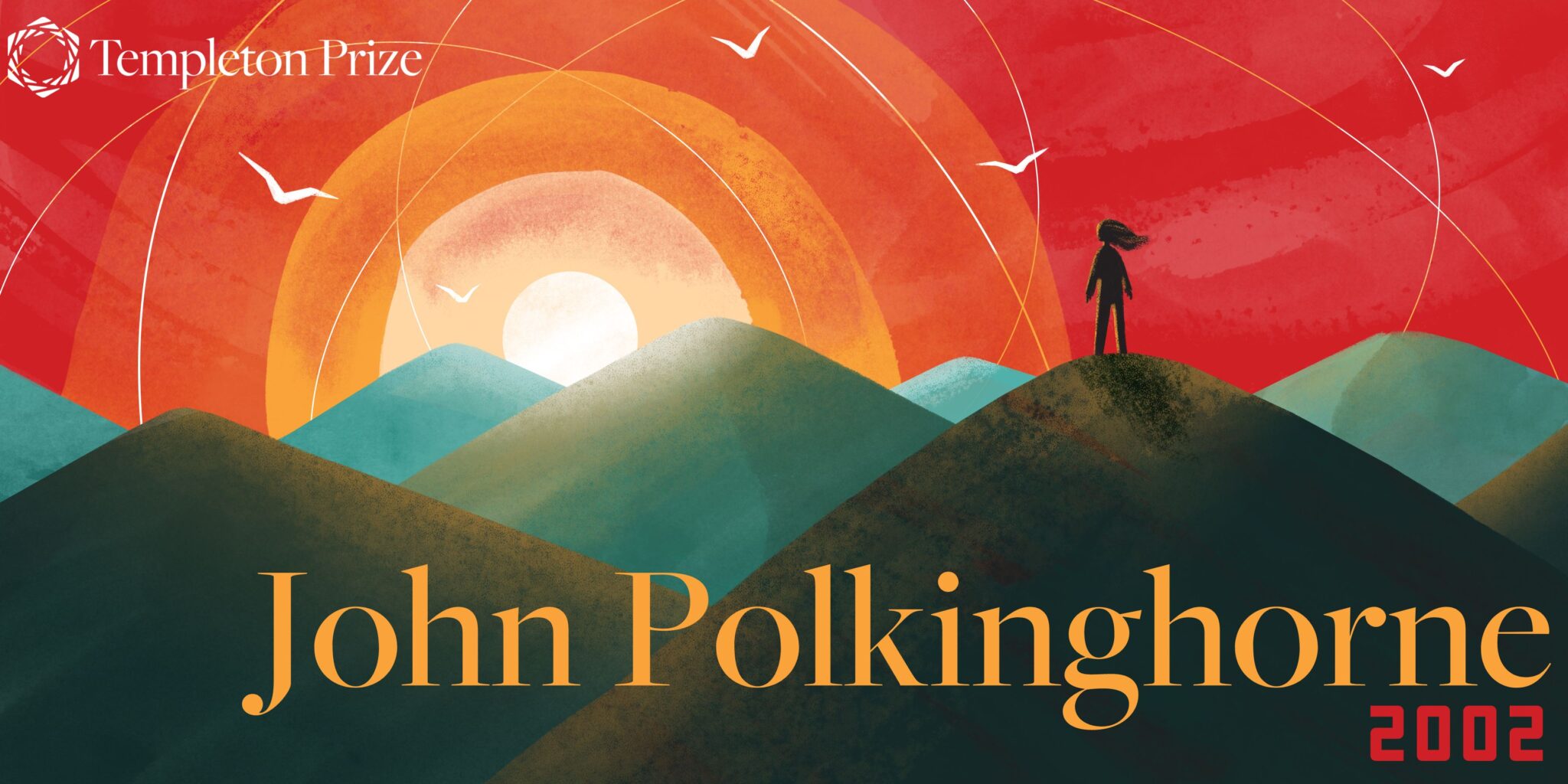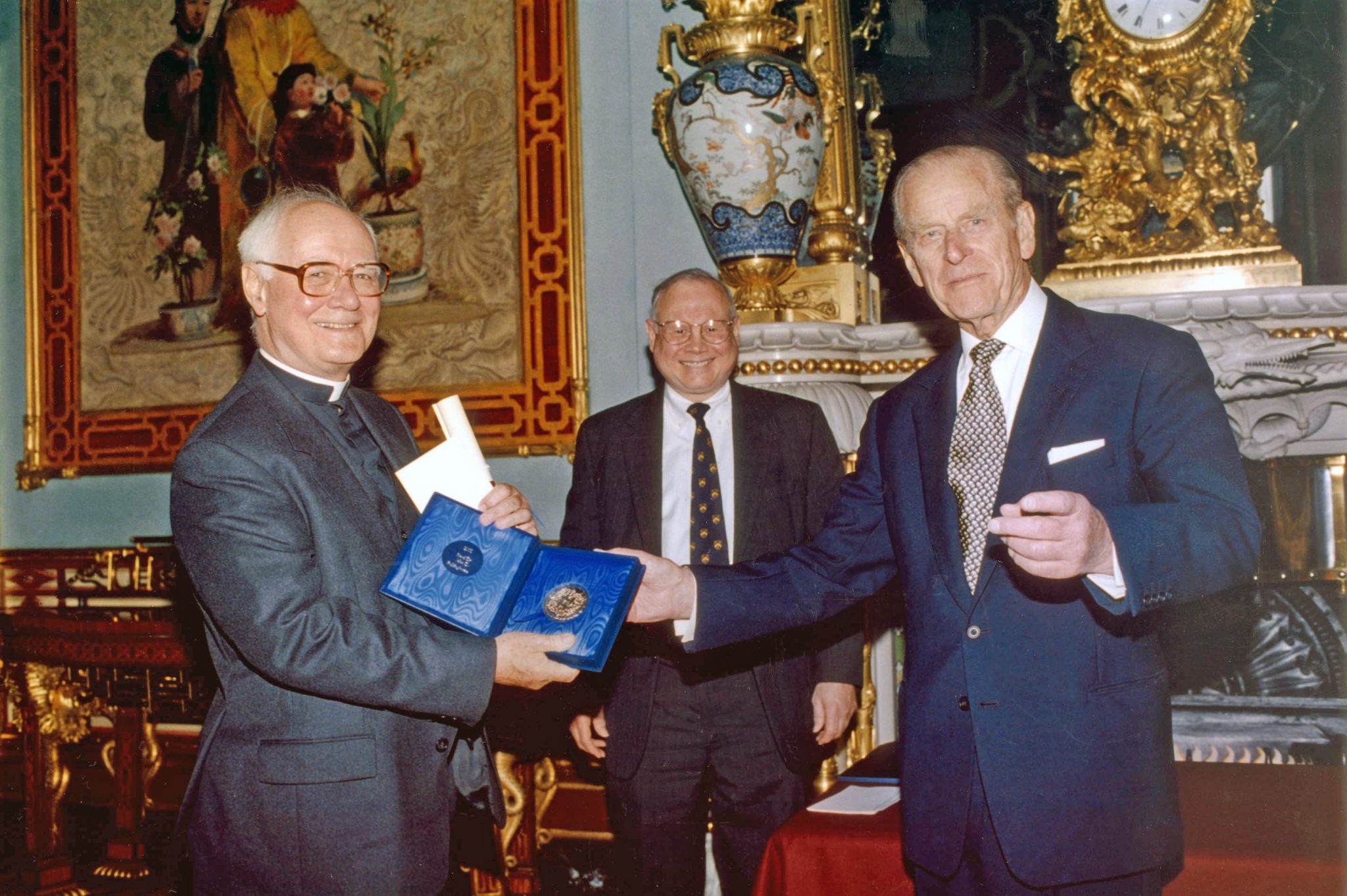In 1973, the first Templeton Prize was given to Mother Teresa. In 2023, we celebrate the 50th anniversary of this award. Over the next 52 weeks, we will highlight each of our laureates and reflect on their impact on the world. From humanitarians and saints to philosophers, theoretical physicists, and one king, the Templeton Prize has honored extraordinary people. Together, they have pushed the boundaries of our understanding of the deepest questions of the universe and humankind’s place and purpose within it, making this (we humbly think) the world’s most interesting prize.
John Polkinghorne was a mathematical physicist and Anglican priest whose treatment of theology as a natural science reignited explorations of the relationship between science and religion.
Polkinghorne was a Professor of Theoretical Physics at the University of Cambridge until 1979, when he resigned the prestigious position to pursue theological studies, entering the priesthood in 1982. An elegant and prolific writer, he authored over 30 books, exploring in rigorous depth the relationship between the discoveries of modern physics and the doctrines of his Christian faith.
His extensive writings and lectures applied a physicist’s perspective to Christianity, offering a fresh exploration of the faith that was highly influential on subsequent scholars of science and religion. His vision of the fundamentals of Christian orthodoxy – including the Trinity, Christ’s resurrection after death, and God’s creation of the universe – displayed the habits of a rigorous scientific mind and brought him international recognition as a voice for understanding the Bible and evolving Christian doctrine.
-

John Polkinghorne, John M. Templeton, Jr., and HRH Prince Philip (2002)
He received the Templeton Prize in 2002 in recognition of his modern and compelling treatment of theology as a complement to natural science, which when viewed together offer what he called a “binocular” vision of the truth.
“The two forms of enquiry view reality from different perspectives,” said Polkinghorne in a statement shared at the March 14, 2002 news conference in New York where he was announced the Prize Laureate.
“Science [studies] the processes of the world, while religion is concerned with the deeper issue of whether there is a divine meaning and purpose behind what is going on. I believe that I need the binocular approach of science and religion, if I am to do any sort of justice to the deep and rich reality of the world in which we live.”
He received his award at a private ceremony hosted by HRH Prince Philip, Duke of Edinburgh, at Buckingham Palace, London.
In 1997, he was knighted by Queen Elizabeth II for distinguished service to science, religion, learning, and medical ethics.
I want to take science and religion with great and equal seriousness. I see them as complementary to each other and not as rivals. The most important thing that they have in common is that both believe that there is a truth to be sought and found, a truth whose attainment comes through the pursuit of well-motivated belief.
— John Polkinghorne
[Polkinghorne] has not only destroyed the idea that the world-views of science and theology are opposed to one another, but he has opened up the road ahead for a new stage in conceptual integration which cannot but make for immense progress in religion all over the world.
— Thomas Torrance
Still Curious?
Learn more about 2002 Templeton Prize laureate John Polkinghorne.

